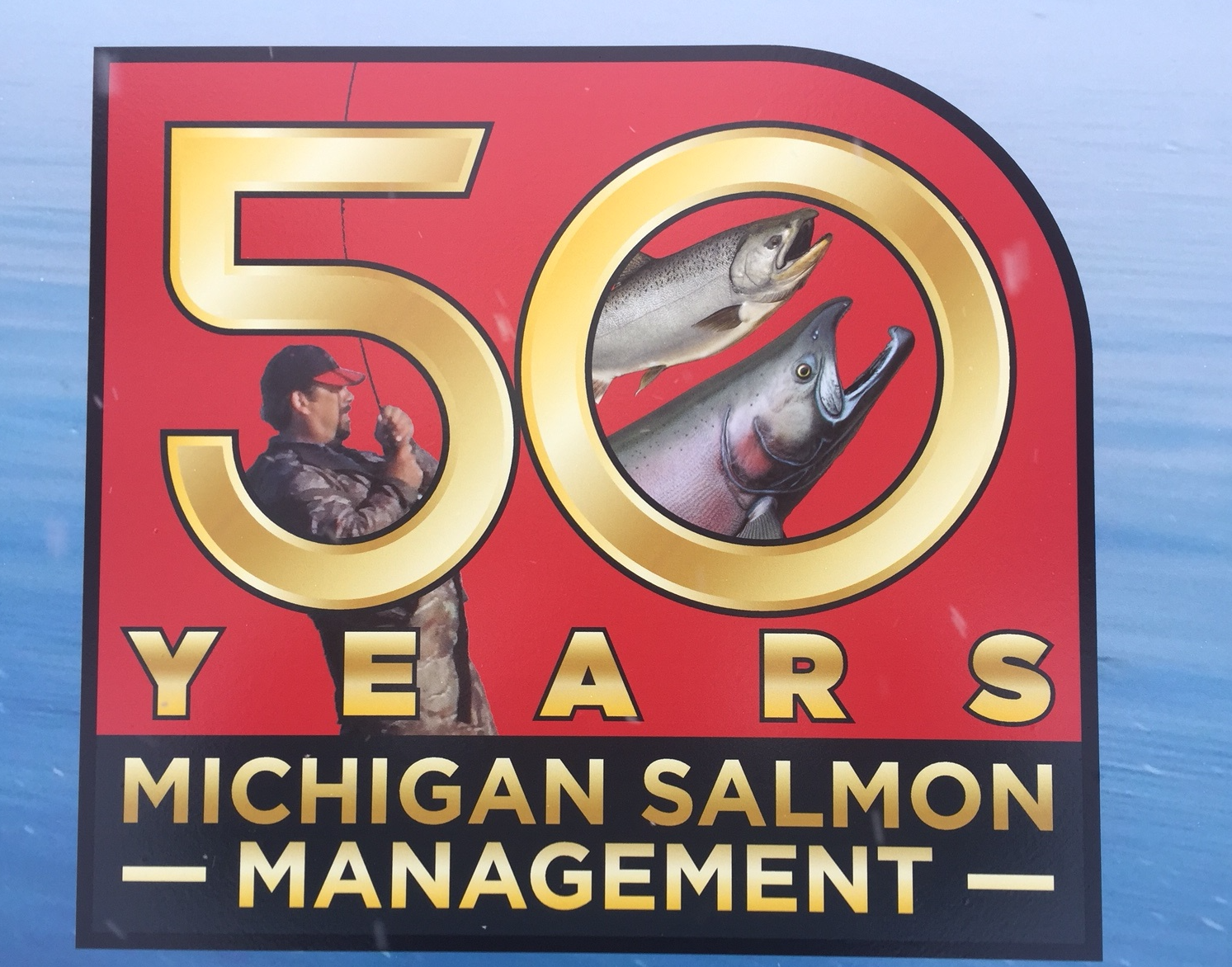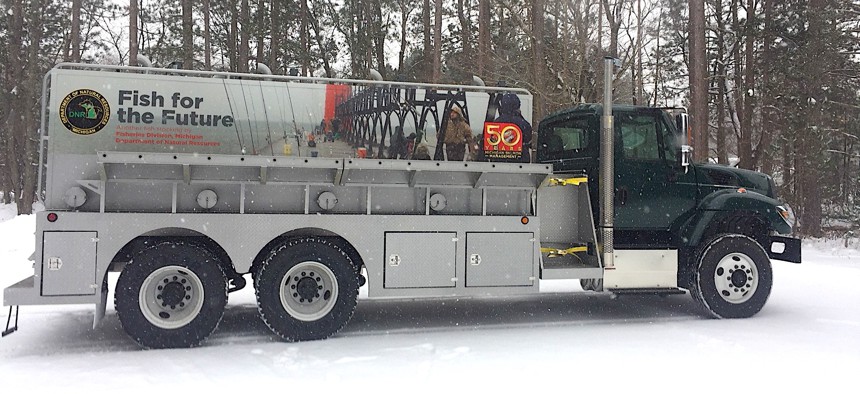Connecting state and local government leaders
“There has to be a cooperative spirit or it just flat-out won’t work,” according to Ed Eisch, fish production program manager for the Michigan Department of Natural Resources.
Throughout the states that border Lake Michigan, fish are on the move.
Some, as you’d expect, are swimming through lakes, rivers and streams—but thousands of others are traveling by truck.
Most recently, it was 40,000 brown trout, trucked from Michigan to Indiana this month to help with annual restocking efforts. The Hoosier State typically gets its trout from Illinois in exchange for a passel of Skamania steelhead, but Illinois suffered a production shortage this year and couldn’t provide the fish.
So an Indiana biologist emailed his counterparts in Wisconsin and Michigan to see if either state had a surplus. Michigan answered the call.
“This is a unique year, because we’re right on the cusp of making a change to the number of brown trout we stock in Lake Michigan,” said Ed Eisch, fish production program manager for the Michigan Department of Natural Resources. “We were going to wait until next year to make the cut because we had so many brown trout in the system to stock. But then Indiana said they would take them, so we were able to do part of that this year.”
States around Lake Michigan trade fish eggs and stock on an ongoing basis, part of a long-term effort to maintain population levels and to regulate the balance of predator and prey species in the lake. (Species in play include chinook salmon, coho salmon, Michigan-strain and Skamania steelhead, brown trout, channel catfish and two strains of muskellunge.) States don’t pay each other for fish or eggs, and will step in to help one another when a shortage is reported. The four-state cooperative effort, an informal program with no governing or regulatory body, has been active for at least a century.
“Over the years, as we’ve seen the fish populations make these tremendous swings in different directions, we all realize that if we don’t work together we don’t stand a chance of managing the fisheries in the Great Lakes,” Eisch said. “There has to be a cooperative spirit or it just flat-out won’t work. Everybody has a stake in seeing it be successful—for our constituents, for our recreational opportunities and for the economic benefit each state sees as a result of a healthy ecosystem. If we don’t work together, we can’t get anything done.”

Some trade agreements are standard and ongoing, but others happen as needed, according to Brian Breidert, Indiana’s Lake Michigan fisheries biologist. For example, Indiana regularly gets chinook salmon eggs from Michigan and ships Skamania steelhead fingerlings to Illinois in exchange for brown trout. But when those agreements break down due to production disruptions or other unforeseen factors, states will step in to bridge the gap.
Occasionally, fish stock is shipped via FedEx or UPS. Fish eggs can also travel by air, Breidert said.
“Illinois flies a plane over to the South Bend International Airport,” he said. “They come to the hatchery and pick up the eggs and put them on their little Cessna, and fly them back where they need to go.”
But road transport is most common. Earlier this month, Michigan’s brown trout fingerlings, each about 6 inches long, were loaded onto three 2-ton trucks and driven back to Indiana. (Transporting them across the state line required importation permits from the Indiana State Board of Animal Health.) Each truck tank, separated into compartments, contained roughly 13,000 fish, Breidert said.
Thirty thousand of the trout were designated for a marina in East Chicago, Indiana. The remaining 10,000 went to Trail Creek, which flows into Lake Michigan. All were pumped into the lake directly from the trucks. The overwhelming majority of fish survive the journey with little drama, Breidert said.
“There’s oxygen and there are aerators to keep the air moving,” he said. “Just like you and I produce carbon dioxide, fish produce carbon dioxide, so the aerators help relieve that. Transport is a fairly scientific process.”
The design of the transport trucks varies from state to state. Indiana’s feature a Department of Natural Resources shield, and hauling trucks have a large fish on the back, Breidert said. Michigan’s are especially flashy, sporting large photos of bridges and lakes overlaid with text proclaiming, “fish for the future,” or “another load of fish for Michigan’s fisheries.” The graphics are intended to signify that fish are inside, Eisch said, which drivers and anglers seem to appreciate.
“People will drive by, lay on the horn and give a big thumbs-up,” he said. “When the fish are being launched into the lake, people will come and talk to us. It’s really kind of a cheery job, because nobody’s unhappy to see fish show up at their lake.”
Kate Elizabeth Queram is a Staff Correspondent for Government Executive’s Route Fifty and is based in Washington, D.C.

NEXT STORY: 5 U.S. Cities Named Finalists for Engaged Cities Award



